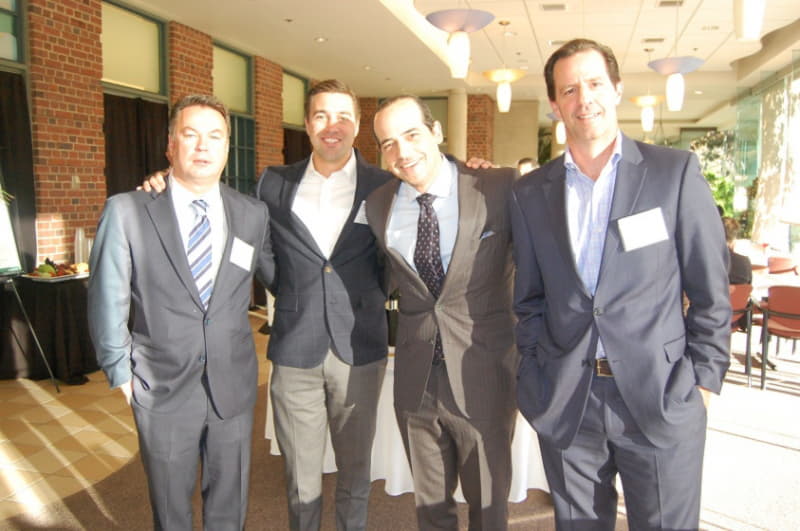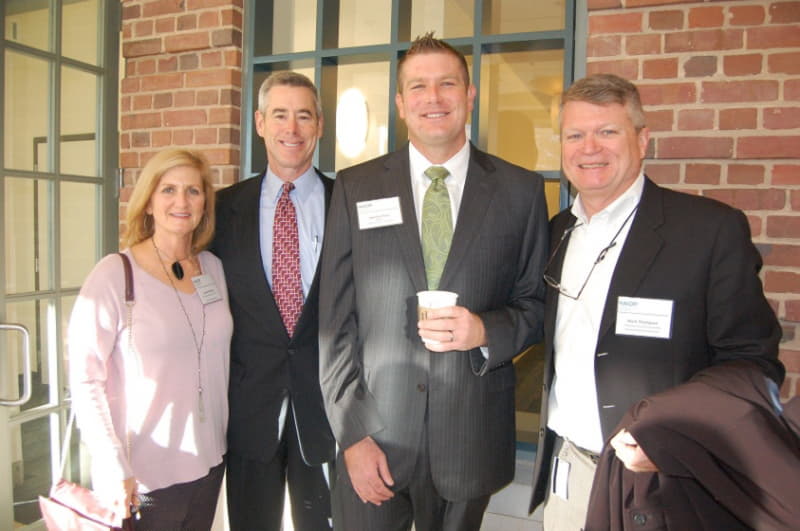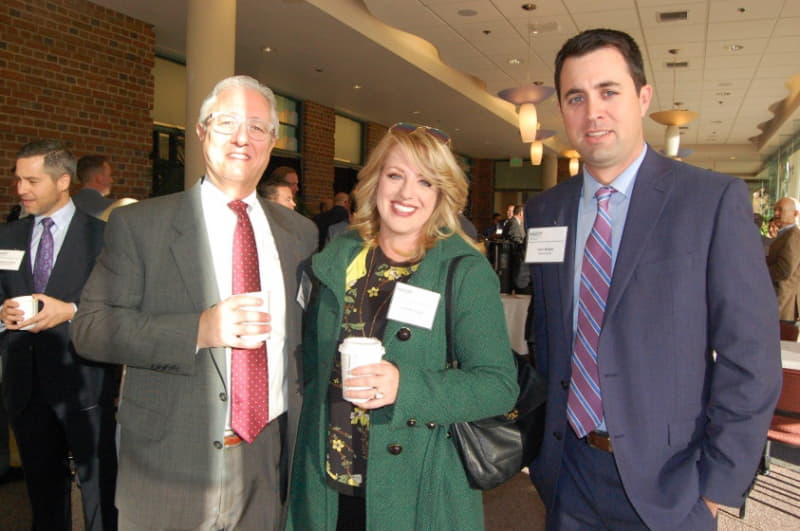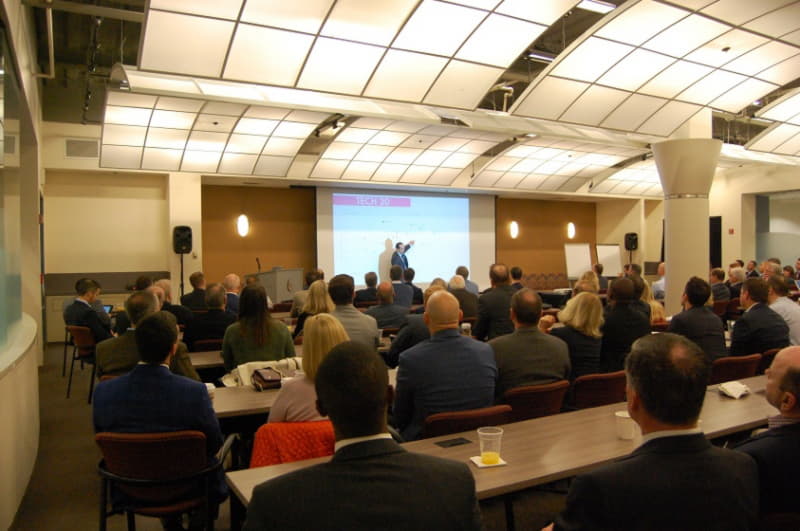
Richard Williamson, St. John Properties; Brendan Gill, The MacKenzie Companies and NAIOP Maryland President; Spencer Levy, CBRE; Vince Bagli, Jr., Merritt Properties and NAIOP Maryland President-Elect
“Labor is everything,” a mantra Spencer Levy, Senior Economic Advisor and Americas Head of Research for CBRE reiterated during his two-hour presentation at the NAIOP Maryland annual “Capital Stack” event at the Mt. Washington Conference Center. Citing research studies, recent real estate decisions and current thinking on possible landing areas for the Amazon headquarters, Levy backed up an early statement that “we are in the labor business, not the real estate business.”
“The availability of talent is often the key factor that drives real estate decisions among companies,” he explained. “The cost of rent amounts to approximately 5% of the expenses for a company, while labor is about 90%. We believe that Amazon will decide the location of their new headquarters based on a city’s ability to attract, create and retain jobs. The real estate companies that market based on costs are participating in a race to the bottom. Look at what is driving companies and people back to the suburbs. It is all about life stage rather than life age. Millennials are attracted to the open spaces of the suburbs. The schools. Larger houses. A back yard. The proximity of transit stops near their office building. There are better options there. Marriott International moved three miles away to gain access to a transit stop.”
Additional discussion points included:
• Money is getting too cheap and labor is also too cheap. Based on this and other factors, we expect cap rates to continue to compress.
• The number of people over the age of 65 years of age is expected to double, to 90 million over the next twenty years. That is why “eds” and “meds” are so important, and why the Baltimore area, with its leading medical institutions is in such a great position. Healthcare will be the number one growth industry over the next ten years.
• The price of services, such as healthcare, continues to rise. The cost of products is going down. Look at television sets as an example. The rapid improvement of innovation makes consumers use less resources. The widespread use of automation is one significant reason that is slowing job growth.
• Parking is in an unusual place right now, mainly due to the Uberization of America. A city in New Jersey grappled with the decision to build several new downtown parking garages. Instead, they decided to give residents $6 per day to take Uber or Lyft.
• We are seeing a densification in the workplace. Law firms are a great example. The size of individual workspaces is shrinking.
• E-commerce is not the major disruptor among the retail sector. Location is. Residents are moving away from poorly located retail venues, causing them to fail.
• The pace of economic growth continues to slow. When this happens, and the pie is not getting bigger, people go after a larger portion of the same pie.
• A war is ensuing among people rallying against the advance of technology, which some refer to as the Luddite Movement. The most recent example is the Equifax information breach.

Connie Rhodes, Rhodes Development; Matt Wilson, The RMR Group; Spencer Perry, BB&T; Mark Thompson, Howard County Economic Development Authority

John DeZinno, Howard Bank; Jennifer Taylor, First National Bank; Tyler Wright, Howard Bank



































